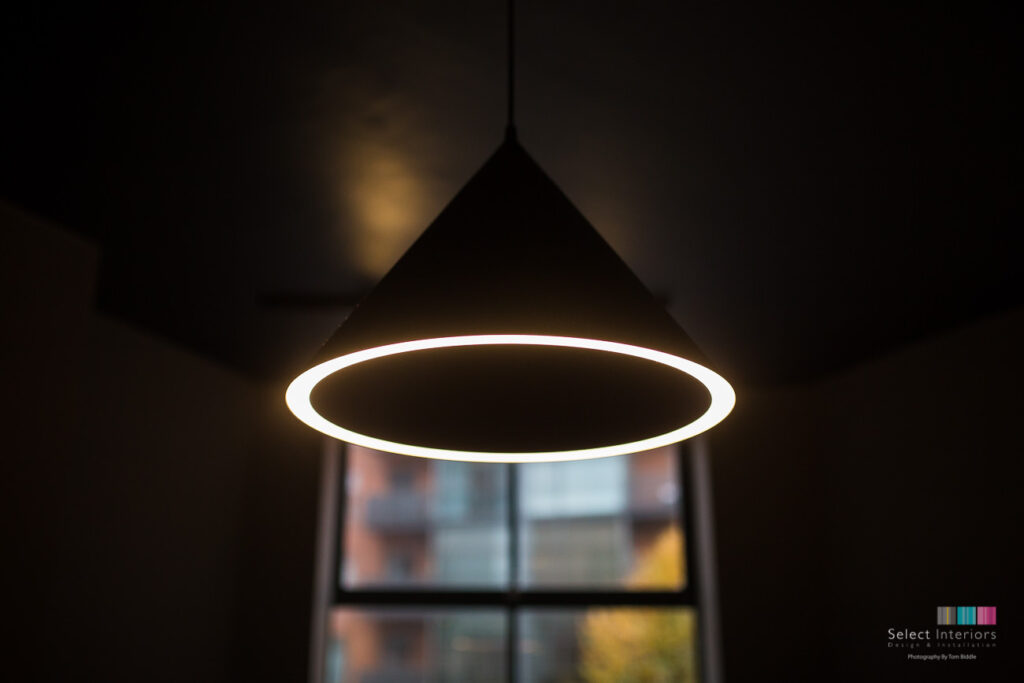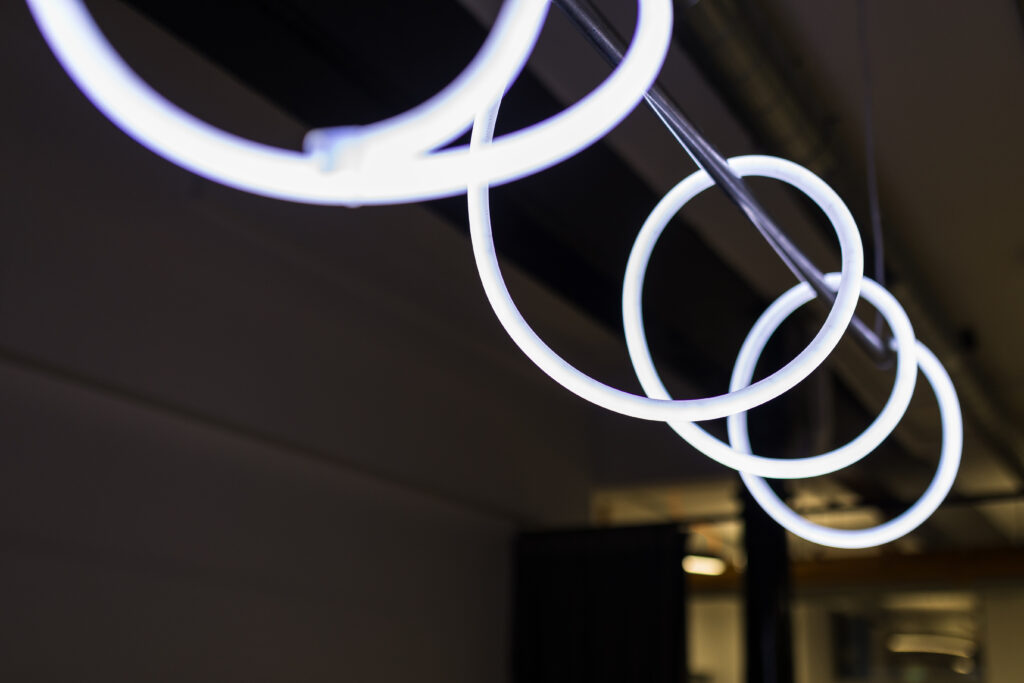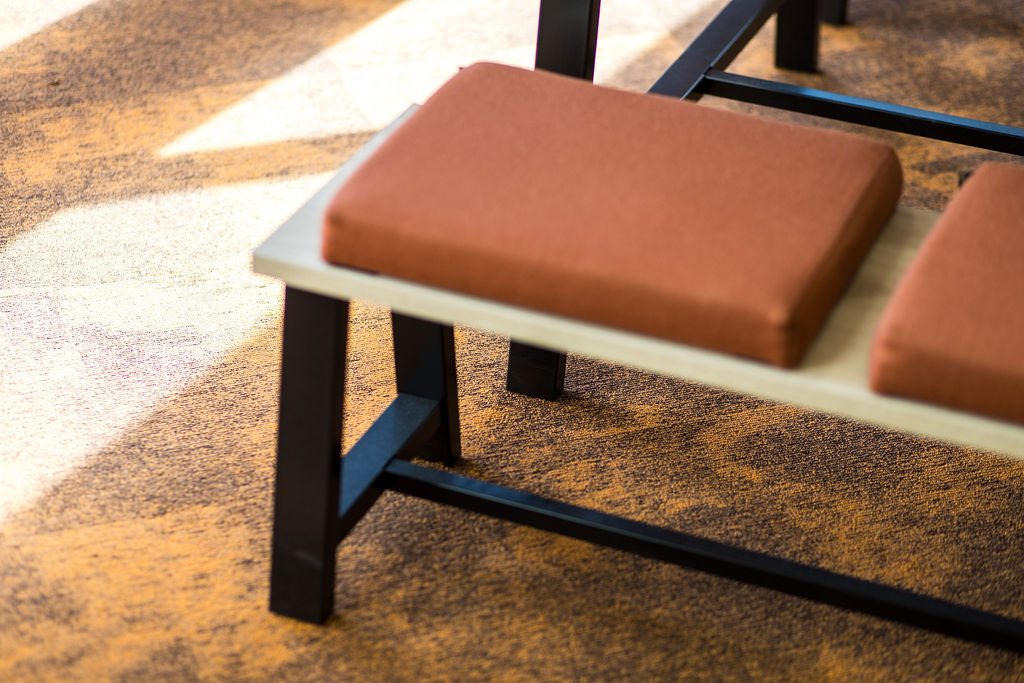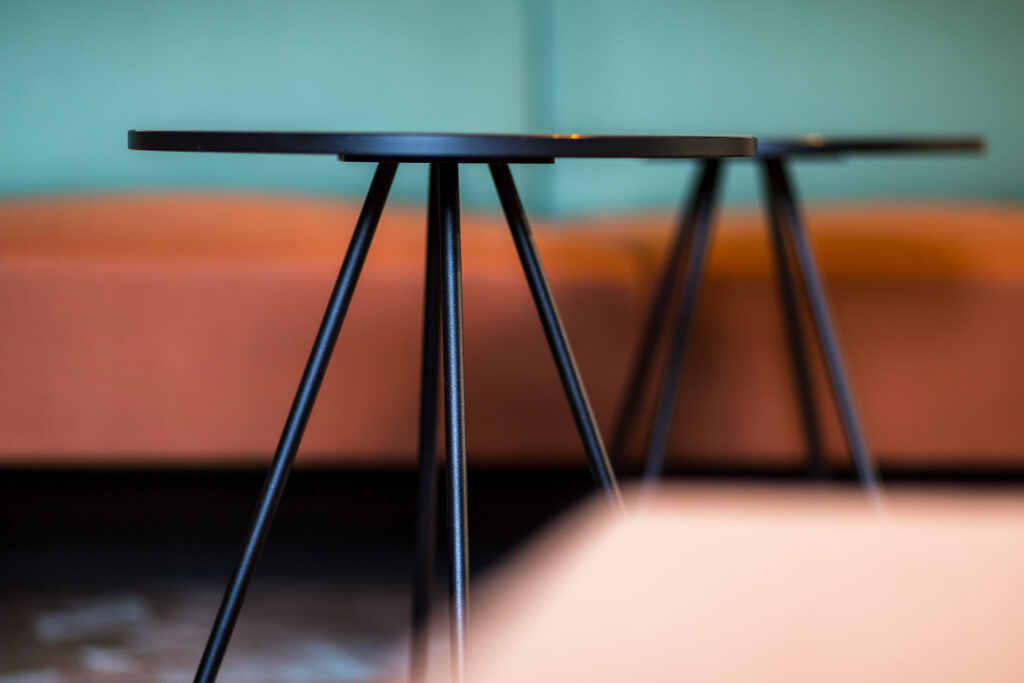Zero Waste Office Space – A Commercial Fit-Out Guide
- Carl Brown
- Design Trends, General, Office fit out, Office Fitting
As companies strive to reduce their environmental impact, the concept of a “zero waste” office is gaining traction. Zero waste goes beyond recycling; it aims to eliminate waste by rethinking the entire lifecycle of products and materials. For office fit-out companies, creating zero-waste office spaces represents both a challenge and an opportunity to lead the way in sustainable innovation. This post explores how fit-out companies can successfully implement zero-waste principles in office design and construction.
Understanding the Zero Waste Concept in Office Design
The term “zero waste” refers to a design philosophy that aims to eliminate waste by ensuring that products and materials are reused, recycled, or composted rather than ending up in landfills. In office design, zero waste means creating spaces where resources are managed responsibly, from construction materials to daily office supplies. The key principles – reduce, reuse, recycle, and rethink – guide decisions at every stage of the office fit-out process, from selecting materials to planning the office’s functionality.
Why a Zero Waste Office Fit-Out Matters
The environmental impact of waste generated by office fit-outs is significant. From construction debris to disposable furniture, the waste associated with office spaces contributes to landfill overflows and resource depletion. For businesses, adopting zero-waste strategies offers numerous benefits, including cost savings, an enhanced brand reputation, and improved employee well-being. A zero waste office also aligns with corporate social responsibility (CSR) initiatives and sustainability certifications such as LEED (Leadership in Energy and Environmental Design) and WELL, which many companies are keen to achieve.

The Role of Office Fit-Out Companies in Creating Zero Waste Workspaces
Office fit-out companies have a critical role in designing and delivering zero-waste office spaces. This starts with integrating sustainability into the planning process. By choosing sustainable materials, reducing waste during construction, and educating clients on zero waste options, fit-out companies can guide businesses towards environmentally responsible solutions. Working closely with clients to understand their sustainability goals ensures that the office space not only looks great but also minimises its environmental footprint.
Sustainable Material Selection in Office Fit-Outs
One of the first steps to achieving a zero-waste office is selecting sustainable materials. Office fit-out companies should prioritise materials that are recycled, recyclable, biodegradable, or sustainably sourced. Certifications such as FSC (Forest Stewardship Council) and GREENGUARD ensure that the materials have been produced in an environmentally friendly manner. Innovative materials such as recycled plastic, bamboo, and reclaimed wood are increasingly popular and significantly reduce the environmental impact of a fit-out project.
Designing for Longevity and Adaptability
An often overlooked aspect of sustainable office design is longevity. Designing spaces that are modular, flexible, and adaptable can drastically reduce waste over time. Office fit-out companies can future-proof office designs by creating layouts that are easily reconfigured as a business grows or its needs change. This prevents the need for frequent refurbishments and reduces the amount of waste generated from discarded materials and outdated fixtures.

Waste Reduction Strategies During Construction
During the construction phase of an office fit-out, waste can be reduced through careful planning and resource management. Fit-out companies should adopt strategies such as pre-fabrication, which minimises onsite waste, and ensure that all excess materials are recycled or reused. Efficient project management also helps to avoid over-ordering materials, which can lead to unnecessary waste. Additionally, any demolition waste from previous office installations should be sorted and recycled wherever possible.
Reusing and Upcycling in an Office Fit-Out
Reusing and upcycling are central components of a zero-waste strategy. Instead of discarding old furniture, fixtures, and materials, office fit-out companies can repurpose them in creative ways. For example, outdated office desks can be transformed into new workstations or shelving units. Incorporating upcycled elements not only reduces waste but also adds a unique aesthetic to the office design, making it a talking point for employees and clients alike.
Circular Economy Practices in an Office Fit-Out
The circular economy model encourages businesses to keep products and materials in use for as long as possible. Office fit-out companies can adopt circular economy principles by designing office spaces that minimise resource use and waste. This can include working with manufacturers who offer take-back schemes, where old furniture or materials are returned to the supplier for recycling or refurbishing. Such practices help to close the loop on material usage and reduce the overall environmental impact of a fit-out.

Energy Efficiency and Resource Management
In addition to minimising waste, zero-waste office design focuses on reducing energy and resource consumption. Fit-out companies can incorporate energy-efficient solutions such as LED lighting, smart thermostats, and efficient HVAC systems. These technologies not only lower the office’s carbon footprint but also reduce energy costs for the business. Water-saving features like low-flow faucets and smart irrigation systems can further reduce resource consumption.
Engaging Employees in Zero Waste Office Culture
An office’s zero waste strategy doesn’t stop at the fit-out stage – it must be maintained through employee engagement. Fit-out companies can design workspaces that promote sustainable behaviours, such as providing easily accessible recycling stations, compost bins, and reusable kitchen supplies. Educating employees on the office’s zero-waste initiatives is essential for creating a culture of sustainability that extends beyond the physical space.
Implementing Digital Solutions to Minimise Paper and Physical Waste
Digital transformation plays a crucial role in reducing physical waste in office environments. Office fit-out companies can support businesses in transitioning to a paperless office by designing spaces that integrate digital tools such as cloud storage, project management software, and e-signature platforms. Minimising paper use not only reduces waste but also streamlines office operations, improving efficiency and collaboration.
Zero Waste Office Furniture and Décor
When it comes to furnishing a zero-waste office, fit-out companies should look for suppliers who offer sustainable, eco-friendly furniture options. Furniture made from recycled or reclaimed materials is a popular choice for zero-waste offices. Additionally, selecting minimalist décor that avoids unnecessary plastic or disposable items helps to maintain a clean, sustainable aesthetic throughout the space.

Measuring the Success of Zero Waste Office Fit-Out Projects
For office fit-out companies, measuring the success of a zero-waste project is crucial. Key performance indicators (KPIs) such as the amount of waste diverted from landfill, the percentage of recycled materials used, and energy efficiency improvements can provide a clear picture of the project’s environmental impact. Monitoring these metrics ensures continuous improvement and helps businesses maintain their zero-waste credentials over time.
Certifications and Standards for Zero Waste Office Fit-out
Certifications such as LEED and WELL provide a framework for assessing the sustainability of office spaces. Office fit-out companies can guide businesses through the certification process by helping them meet the necessary criteria for energy efficiency, waste reduction, and resource management. Achieving these certifications not only benefits the environment but also enhances the company’s reputation as a leader in sustainability.
Future Trends in Zero Waste Office Design
Zero waste office spaces represent the future of sustainable business practices, and commercial fit-out companies play a key role in this transformation. By embracing sustainable materials, waste reduction strategies, and circular economy principles, fit-out companies can help businesses achieve their zero waste goals while also contributing to a healthier planet. As the demand for eco-friendly workspaces continues to rise, the companies that prioritise sustainability will not only reduce their environmental footprint but also gain a competitive edge in the market.
Contact us today and let’s create your dream office.

